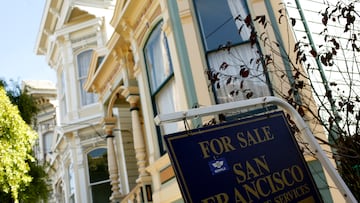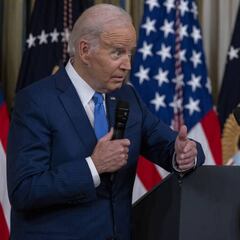Is the real estate bubble growing in the US?
Housing prices have risen on a monthly basis since 2012, but there is now concern that the rate of increase may have become unsustainable.


House prices in the United States rose by 6.6% in October, when compared to the same month in 2021. This marked a full decade of year-on-year increases to the median house price, a staggering run of growth pushed further by covid-19.
During the pandemic a variety of economic factors conspired to push house prices in the US to historic levels. As interest rates fell rapidly it made mortgages more affordable, pushing prospective buyers to make a purchase quickly, while the low rates were available.
This surge of demand was further fuelled by the belief that buyers needed to act swiftly to take advantage of the temporary lull in interest rates. Economist Enrique Martinez-García published a report recently which found that buyers exhibited a “fear of missing out” mentality that may have created a “bubble” in the housing market.
Follow the latest economic news...
However now that interest rates have risen significantly, the price of mortgages has shot up too and buyers are becoming a lot less motivated. Although the price of homes sold has continued to rise, the frequency of those sales has fallen dramatically.
A report from the National Association of Realtors found that sales of existing homes were down 28.4% in October from a year ago, and down 5.9% from September. So is this just a temporary consequence of poor economic trends or a long-term adjustment to a housing market bubble?
Is there a real estate bubble?
A ‘bubble’ is a term used to describe a market that has seen a run-up in prices, fuelled by demand and speculation, to an unsustainable level. Once those who are speculating on continued price rises start to believe that the increase may not continue, it can spark a selling spiral that sees the price collapse.
There was a major housing market bubble in the 2000s which stemmed from an influx of fresh cash into the housing market. This money, combined with favourable lending conditions, inflated prices to a point where they became unsustainable and the bubble burst.
But are we there again? A report authored by Martinez-Garcia for the Dellas Federal Reserve found that price rises in recent months were even greater that were recorded in the build-up to the housing market crash of 2008.
Related stories
He wrote that the “unprecedented pandemic boom” posed a risk for the US economy and the housing market more specifically, and that there remains “the possibility of a sharp price correction leading to an economic contraction”. However he added that a ‘bubble burst’ moment is far from inevitable and can be avoided with smart monetary policy in the US.
Given the fluctuating economic trends of the past two years, the housing market has endured a lot of uncertainty. As we return to a state of normality it is likely that there will be some degree of readjustment in housing prices. However at this stage, the prospect of a full-scale bubble burst does not appear imminent.

